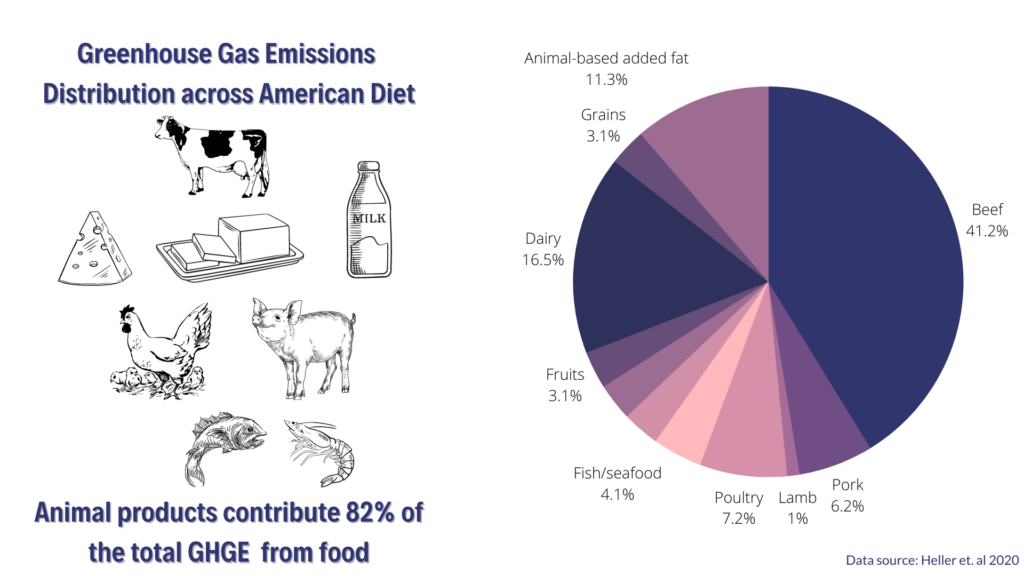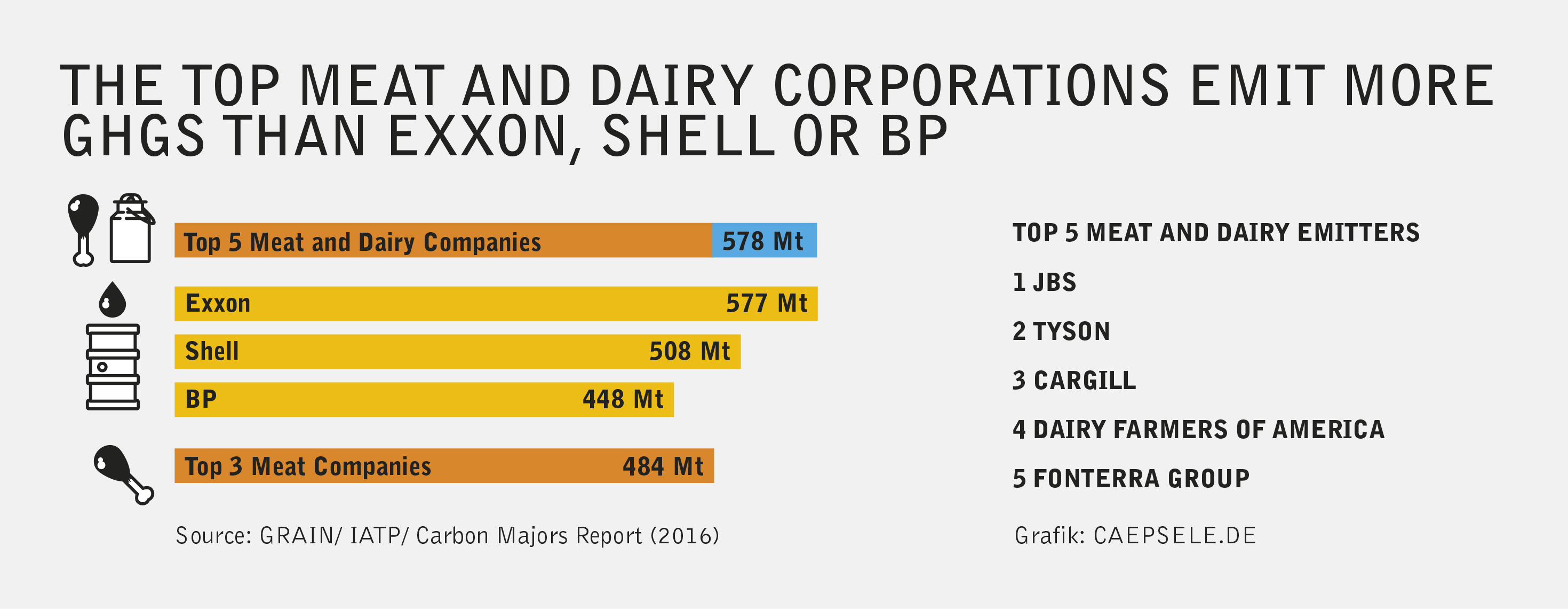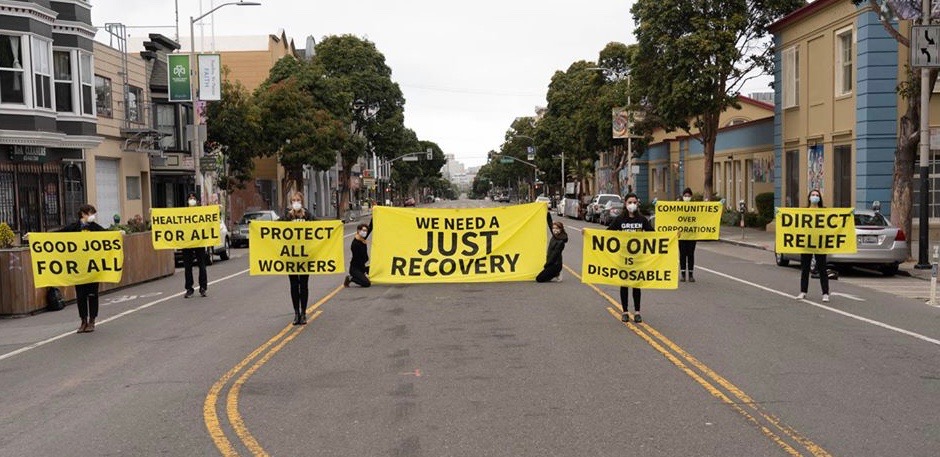The Earth will thank you!

In March 2020, the COVID-19 pandemic shattered normalcy around the globe—a tragic reminder of the fragility of the global economic system and a dark illustration of the deep connection between human health and our environment. As months turned into a year of stay-at-home orders amidst high levels of unemployment and food insecurity, anxiety increased and angst over the future reached an all-time high.
Despite the feeling of helplessness that increased during our ‘new normal,’ there is always a reason for hope, even during the darkest hour.
When government across all levels failed to meet the needs of the majority of its population, mutual aid organizations, in the tradition of the Black Panther Party and the Young Lord’s projects of survival, swiftly mobilized to fulfill the government’s role.
Just as the Black Panther Party established a community free breakfast program to feed young Black children so that they would be nourished and sustained to participate in the revolution, mutual aid organizations not only met the needs of their communities, they organized protests, banner drops, marches, and encampments and to demand action on housing, racial justice, and the climate crisis.
The unease that lingers as developed nations increase vaccine disruption while developed nations’ cases and deaths continue to swell is not new. That creeping feeling of hopelessness is reminiscent of “climate anxiety”— the mental condition caused by the existential threat of the climate crisis, felt most deeply by young people.
As the battle to waive patent rights to the COVID-19 vaccine continues, there still may be light at the end of a devastating year and a half, and although not even the global shutdown caused a significant decrease in greenhouse gas emissions (GHGE), there are ways in which individuals can feel empowered every day to take action, even against the greatest threat to human life: the climate crisis.
According to the Intergovernmental Panel on Climate Change (IPCC,) the agriculture, forest, and land-use sector is responsible for a quarter of all greenhouse gas emissions in the world, more than the transportation, building, energy, and ‘general industries’ and nearly tied with electricity.
Because the lionshare of emissions within the food sector is caused by meat and dairy production, going vegan is one of the most impactful lifestyle changes that you can make to curb climate change.
Researchers at Oxford University found that switching to a vegan diet reduces an individual’s carbon footprint from food by up to 73%. Without major dietary shifts and agricultural reform, multiple studies have concluded that it will be impossible to achieve the goals of the Paris Agreement to mitigate global temperatures “well below” 2◦C.
Leading international bodies, including the IPCC and UN Environmental Programme (UNEP) and other experts have long advocated for widespread dietary shifts to curb the impacts of climate change, particularly among developed nations.
Ilmi Granoff from the Overseas Development Institute, a leading think tank in the UK, has advocated that the “fastest way to address climate change would be to dramatically reduce the amount of meat people eat.”
The burden to reduce meat consumption falls most heavily on the US; the average American consumes around 220 pounds of red meat and poultry per year and has been projected to eat as much as 10 ounces of meat and poultry per day—4.5 ounces more than the recommended amount.

A 2020 study from the University of Michigan found that if Americans cut their consumption of animal-based foods by 50% (including a 90% cut to their consumption of beef), it could reduce diet-related US GHGE by 51%. In addition,
a recent report by the World Wildlife Fund (WWF,) the UN Environment Programme (UNEP), EAT and Climate Focus found that including food systems in signatories’ Paris Agreement carbon goals could reduce emissions by as much as 12.5 Gt CO2e—the equivalent of taking 2.7 billion cars off the road—and could deliver up to 20% of emission reductions needed.
The GHGE released from both meat and dairy production—methane, and nitrous oxide—are even more potent than those from the transportation or energy sectors and have 56 times and 280 times the global warming potential of carbon dioxide. Yet, because methane remains in the atmosphere for a significantly shorter amount of time than carbon dioxide, reducing methane emissions today from the agriculture industry can produce immediate results.
The EAT-Lancet Commission confirms that global food and agricultural production are the top drivers of deforestation, land conversion, biodiversity loss, topsoil loss, depletion of freshwater resources, and pollution of aquatic and terrestrial ecosystems. The food system, particularly meat and dairy production, is responsible for nearly half (40%) of global land and the majority (70%) of freshwater use.

The extractive industries that produce meat and dairy products in the US and abroad produce more GHGE than the entire country of Germany, and more than top oil producers.
By refusing to support these industries (which primarily employee people of color and immigrants in some of the US’ most dangerous jobs, even before the pandemic) you are joining a growing movement of individuals across the country and the world that are boycotting meat and dairy products and holding these businesses accountable for their role in the climate crisis.
Boycotts have served as a powerful strategy throughout history, particularly in the fight for racial and labor justice in the US.
Most famously, the Montgomery bus boycott—the 381-day mass protest against the bus system of Montgomery, Alabama by civil rights activists and their supporters—led to a 1956 US Supreme Court decision that ruled that Montgomery’s bus segregation laws were unconstitutional.
More recently, the Coalition for Immokalee Workers, a human rights organization led by farmers in Florida, forced fast-food chains like Taco Bell, McDonald’s, and Burger King to meet their demands to improve wages for tomato pickers in their supply chains after a series of national farmworker boycott of those restaurants.
These successful movements show the power of targeted boycotts in forcing industries to shift to more sustainable practices or transition from producing animal products altogether.
Alongside a shift to a primarily plant-based diet, you can make your contribution even more impactful by also lobbying Congress (find your legislators here,) to ask that they support the Green New Deal and expand the scope of President Biden’s Paris Agreement target carbon emissions plan to include a reduction in factory farming and meat production/consumption.
Food is a human right that we should all enjoy—incorporating and prioritizing a plant-based diet over a meat and dairy heavy diet is one step that anyone can take to ensure that folks around the world will be able to enjoy healthy, culturally apprioate, delicious food (and a healthy planet) for years to come.
—
Brand new to veganism?
The revolution is more fun in groups; check out environmental organizations like Extinction Rebellion that are advocating for immediate action on climate change and an end to animal production and consumption.
Don’t forget, when shifting your diet, you can start small with Meatless Mondays and slowly transition to removing more animal products—use these startup guides to get inspired!

